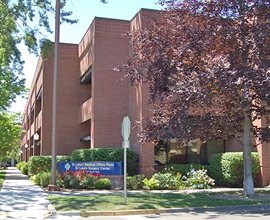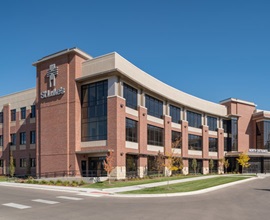
Genetic counselors are master’s level, certified professionals who help you understand scientific, medical, and genetic information relating to your family history, medical history, and pregnancy. We help clarify the risks for occurrence or recurrence of a genetic or inherited disorder or condition in certain family members.
We can also help you and your family make sense of complex options for testing and interventions, and explain the results of diagnostic tests. Based on your genetic counselor’s risk assessment, you and your family will be better able to make informed medical decisions in a supportive environment that affirms your personal cultural, religious, and ethical beliefs.
We can also help you and your family make sense of complex options for testing and interventions, and explain the results of diagnostic tests. Based on your genetic counselor’s risk assessment, you and your family will be better able to make informed medical decisions in a supportive environment that affirms your personal cultural, religious, and ethical beliefs.
How Our Experts Can Help
Our team will work with you to address the complex educational and emotional needs you face when dealing with a diagnosis or risk of occurrence of a genetic disorder or birth defect. Most of the patients we see are contemplating or undergoing pregnancy, and have been referred by their primary care provider for discussion of risks to their unborn baby and diagnostic testing or screening options.We’re also involved in coordinating testing and can connect you and your family with national and community-based resources, including support groups and funding agencies.
Is Genetic Counseling for You?
Your doctor may refer you to a genetic counselor at St. Luke’s Clinic – Maternal Fetal Medicine if:
- You’re 35 years of age or older and considering a pregnancy or currently pregnant.
- You’ve had a previous child with intellectual disabilities, an inherited disorder, or a birth defect.
- You or your partner have, or are concerned that you may have, an inherited disorder or birth defect.
- You’ve had two or more miscarriages or babies who died in infancy and are pregnant or considering pregnancy.
- You’re concerned that your job, lifestyle, or medical history may pose a risk to a pregnancy (i.e., due to chemical, radiation, drug, or medication exposure).
- You and your partner are related (i.e., first cousins).
- You would like information or testing regarding genetic defects occurring more frequently in your ethnic group.
- You’ve been told your pregnancy may be at increased risk for complications or birth defects based on results of tests such as the multiple marker blood test (“triple” or “quad” screen) or an ultrasound test.
If You’re Pregnant: Testing for Genetic Abnormalities
This testing can determine the level of risk in a given pregnancy for a variety of adverse outcomes, such as Down syndrome, spina bifida, and a severe chromosome abnormality called trisomy 18. Based on results of this test, further diagnostic testing, such as amniocentesis, may be recommended.In certain specialized centers, like St. Luke's Clinic – Maternal Fetal Medicine, a new highly accurate prenatal screening test is available. This test is available in early pregnancy.
Even with normal results, there is a small chance that a baby will be born with problems. There are many birth defects, genetic conditions, and other abnormalities that no prenatal testing method can detect.
Fetal Chromosome Abnormalities and Increased Maternal Age
It’s now widely recognized that as a woman increases in age, her risk for a child with a chromosome abnormality, such as Down syndrome, increases.A 20-year-old woman has about a one in 2,000 chance of having a child with Down syndrome.
- At age 30, it’s one in 952
- At age 35, it’s one in 385
- At age 40, it’s one in 106
- At age 45, it’s one in 30


